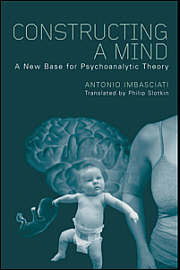
Constructing a mind. A new base for psychoanalytic Theory
Psychoanalysis could be successful not merely for its clinical value – to cure unexplained syndromes that were considered incurable– or for its method, judged very ‘strange’ and not scientific, but also for the theory that Freud created to explain the origins and the functioning of the mind: the Drive Theory. The concepts that Freud considered as theoretical basis (instinct, drives, energy, drive discharge, homeostasis and economic principle) tracked scientific principles and discoveries of neurophysiology and thermodynamics at that time and gave to psychoanalysis an adequate scientific aspect. Today the method has been accepted, while the energy-drive model is criticised and rejected, because it is in contrast with the modern neuroscience. In spite of this, the Freudian theory seems to “withstand”: still today psychoanalysis is identified with Freud’s theory, sometimes also in scientific circles, with remarkable damage for a free integration of the different sciences of the mind. One reason for this persistence could be that psychoanalysts have developed their science too entranched in a theory that became a doctrine and in the myth of the Master, so that the most original psychoanalytic developments, which contained different ideas, have proposed different models but have failed in providing a clear alternative with an explanatory power similar to that which Freud’s Metapsychology and Drive Theory had at his time. This book is the conclusion of more than 20 years of studies and publications aiming at integrating psychoanalysis with other sciences of the mind, in particular with experimental psychology, studies on the neonatal mind, cognitive-behavioural approaches and in generally current neuroscience. Here, the topics addressed in his previous book, Birth and Construction of Mind, are developed, updated and reformulated in a consistent framework which proposes a new explanatory theory –a new Metapsychology– about the construction and development of Mind in agreement with psychoanalytic clinics and at the same time with what other sciences of the mind maintain today. This theory draws on Bion’s theoretical models as well as on the contributions of cognitivism approaches and explains the construction of the mind and its origins in terms of learning (starting with fetal learning),modulated by the relationships, and gradual construction of implicit functional memories which are structured in the central nervous system.
Constructing a Mind
A new base for Psychoanalytic theory
Brunner-Routledge, London, 2006, vol. pp. 259
Antonio Imbasciati
Constructing a Mind draws on psychoanalytic theories of mind and recent developments in cognitive science to present the Protomental System, a new and original explanatory theory of the development of the human mind.
This book aims to move psychoanalytic theory away from its origins in Freud’s theory, towards a model which gives priority to cognition and memory. This, Antonio Imbasciati argues, will make possible a successful and productive integration of psychoanalysis with other areas of psychology.
Subjects covered include:
–
The mind as an information-processing system
–
Constructing the system: from fetus to baby, child, and finally adult
–
The caregiver relationship as a decoding system for information processing
–
The paranoid-schizoid metabolism of information
–
Memory of functions and memory traces of affects
–
Internal information generated by the system
–
The depressive position and learning to know
–
Reparation and thought
This thoughtful and thorough account of cognitive development provides a conceptual framework that succeeds in making some of the more complex areas of psychoanalytic theory more intelligible.
Constructing a Mind will be of great interest to psychoanalysts, psychotherapists and cognitive psychologists, especially those with an interest in neuropsychology and neonatal development.
Contents:
Introduction. The Mind. An Explanatory Theory for Psychoanalysis. The Mind as an Information-processing System. The Engram: Afferences. Mental Operations and Internal Objects. Levels of Protomental Operations. The Paranoid-schizoid Metabolism. Affects as Cognitive Operations. Corporeity and Modes of Thought. The Depressive Position and Learning to Know. Reparation and Thought.
